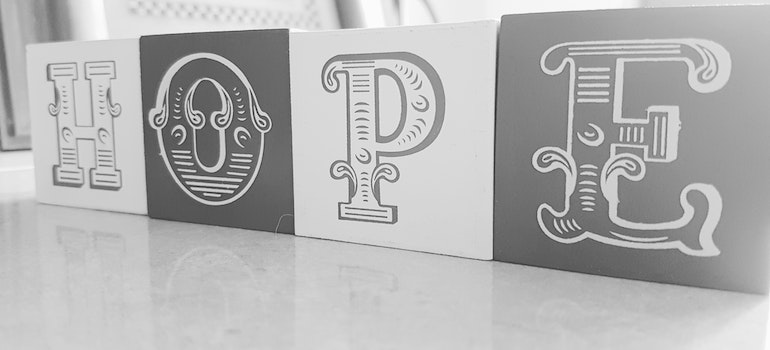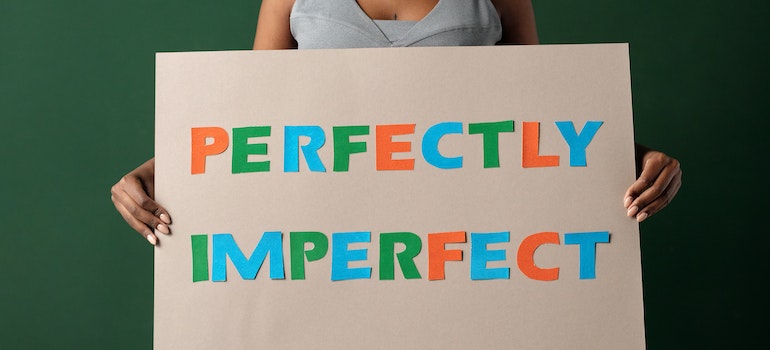Addiction is well known to impact your relationships negatively. In the pursuit of substances, you may distance yourself from friends and family or even cut them off entirely. So when you start drug and alcohol rehab in West Virginia, you’ll want to work on repairing those relationships. This is an incredibly important step in your recovery. But when taking it, you should remember to also focus on one of the most important relationships in your life – the relationship you have with yourself. Substance use can greatly impact your own self-image, making it difficult for you to accept who you’ve become. A negative self-image can, in turn, interfere with your recovery. It’s important to learn to love yourself and reclaim your life after addiction if you want a future that is not just sober but also bright.
How does addiction impact self-image?
It is well known that addiction is associated with poor mental health. Mental illness can lead to addiction for those who self-medicate with substances, and addiction often leads to mental illness, in particular anxiety and depression. One of the aspects of mental health that are most commonly affected by addiction is self-image. Addiction can cause you to struggle with both your body image and self-worth.

To begin with, drugs often change the way you look. The obvious changes have to do with the method of substance use and the effects of the substance – bloodshot eyes, swollen and bloody noses, and track marks. But there is more. Many substances cause skin lesions, which can become infected and look quite gruesome at times. Others suppress appetite and cause you to lose a lot of weight, which can change your entire appearance – just ask the people in heroin rehab centers to show you what they looked like before and after addiction. Such major changes to your body can not only make you dislike how you look but also cause you to feel a disconnect from your own physical form, which leads to a whole host of other problems.
Finally, drugs can affect the way you think about yourself. You may, for example, be disappointed or angry with yourself for falling prey to addiction, especially if it is because of a relapse. Many addicts describe feeling like they’ve failed at something – maintaining sobriety, living a normal life, and being there for their friends and family. They often feel lonely and misunderstood, which exacerbates the negative self-image they’ve developed. Combined with the struggles of rehab and the side effects of drugs and detox, this can lead to depressive episodes and other mental disorders.
Why is it important to learn to love yourself and reclaim your life after addiction?
When you see yourself in a negative light, you often lose faith in your abilities and even your worth. You may start to doubt that you can get through fentanyl detox treatment and give up before you’ve even given it a fair shot. But asking for help also starts to feel impossible because you no longer think you deserve it. These kinds of thoughts can kneecap your attempts at a fulfilling sober life. You need to relearn how to love yourself and treat yourself well if you want to beat addiction successfully and enjoy your life after rehab.
Having the right mindset can increase your odds of success
Getting through cocaine addiction rehab is difficult enough when the odds are stacked in your favor – when you can take as much time off work as you need, when you can afford any treatment you need and when you have the support of your loved ones. It’s much worse when the circumstances are not ideal. You don’t want to make things harder by going into rehab with the wrong mindset. Doubting and hating yourself is definitely the wrong mindset.

The right mindset on its own won’t cure addiction, of course. But studies have repeatedly shown that a positive outlook makes positive outcomes more likely, especially when it comes to mental health. Therefore, it can be very beneficial for you to learn to love yourself and reclaim your life after addiction as you work to build your future.
Living in the past makes it impossible to focus on the future
It is quite common for addicts to regret the things they’ve done once they’re in Ambien rehab. You may think back on all the bad choices you’ve made, the people you’ve hurt, and crimes you may have committed and think that you don’t deserve redemption. But you cannot let the guilt consume you. Acknowledge the mistakes of your past, apologize for them, and then move on. This is the only way to transition from addiction into a sober, happy, and fulfilling life.
Self-love improves mental health
Anxiety, depression, and stress are all par for the course in rehab. However, if your mental health continues to decline after treatment, you may well end up in barbiturates rehab again. Being overly critical of and negative to yourself contributes to poor mental health, especially in people who suffer from co-occurring disorders like anxiety, depression, BPD, bipolar, and ADHD. Discuss and work with your therapist on improving your self-image, and your other mental health issue will become easier to tackle.
Self-love improves social standing
Having a good support system is vital for people with substance use disorders. Your loved ones can be there for you during benzo rehab and help get you back on your feet once you go back to your everyday life. Unfortunately, addiction tends to alienate people from those same support systems. If you’ve pushed your friends and family away while abusing substances, you’ll want to make some new friends. This is the best way to rebuild your social circle without going back to the toxic people from your past. And meeting new people is a lot easier when you’re confident and comfortable with who you are, not only because you will feel more secure in your interactions with others but also because people are attracted to people who appear self-assured. If you want to expand your friend circle, start by working on yourself.

Top 10 things to do when learning to love yourself and reclaiming your life after addiction
You will receive regular therapy during your treatment at the stimulants addiction rehab center. During these sessions, your therapist will help you understand yourself and your thoughts better. If you struggle with self-image issues, this is the perfect time to bring those up. Here are some of the things your therapist might suggest you do:
1. Own your past
There is, unfortunately, still a lot of stigma surrounding addiction. Many people still feel the need to hide that they’ve received treatment at an opiate rehab center from everyone but their closest friends and family. If you don’t feel comfortable sharing your struggles with everyone, that’s totally okay. But it should be a choice you’ve made, not something you feel obligated to skirt around because of guilt and shame.
Your addiction is a part of your life. It may be a part of your life that you’ve left behind, but it still happened. There’s no point in denying it, especially not by lying to yourself. Even if you’ve done something you’re not proud of while you were addicted, it’s healthier to admit to it than to suppress it. After all, addict or not, nobody is perfect. We all make mistakes; what matters is that we learn from them. If you really think about it, you should actually be proud of yourself for going through rehab and recovery. It shows the progress that you should be proud of.
2. Forgive yourself and move on
Speaking of your past – while acknowledging it is important, you shouldn’t hang on to it too tightly. Whatever wrongs you may have committed are already done. There’s no point in beating yourself up over them all the time. Now that you are in an intensive outpatient program West Virginia, you won’t repeat the same mistakes again. Once you’ve made your amends, it’s time to move forward. You don’t have to keep paying for your past forever.
Forgiving yourself will be a huge step in the right direction on your journey to learn to love yourself and reclaim your life after addiction. It will help you deal with the guilt and shame you may be feeling over your actions. Unaddressed, these feelings can eat at you and make it harder for you to learn to love yourself and reclaim your life after addiction. Of course, forgiving yourself is not always easy and may take you some time. Knowing that your loved ones and others affected by your actions have forgiven you might help you. This is why making amends is such a crucial step – when you hear from those around you that they don’t hold your mistakes against you, it becomes easier to let go of them yourself.
3. Give up the idea of perfection
There is no doubt that perfectionism can hinder addiction recovery. When you constantly expect yourself and others to do everything perfectly, you quickly end up disappointed. Continuous disappointment will dishearten you and discourage you from continuing your treatment and recovery at a meth rehab center West Virginia. Make your peace with the fact that you’re not perfect, and your recovery won’t be either. You may be irritable and short with people during a detox due to withdrawal symptoms, you may relapse and need treatment again in the future, and you may never get back the life you had before addiction. That’s okay – you can always try again.

It’s more important to continue working on bettering yourself than to strive for perfection and give up when you inevitably fail. This mentality will go a long way toward making it easier for you to practice self-love; when you allow room for mistakes, it’s harder to hate yourself for making them.
4. Continue therapy after rehab
There is plenty of evidence that a CBT treatment plan for substance abuse can help you successfully recover from addiction, but that’s not all therapy can do for you! Therapy, CBT or otherwise, can be very beneficial for mental health. People who suffer from disorders like anxiety, depression, ADHD, OCD, BPD, bipolar, ED, and more can learn to manage their symptoms through therapy. Believe it or not, even people without any mental health issues can benefit from therapy. It’s your opportunity to regularly talk about anything that bothers you without being judged and receive professional help with your struggles.
If you find therapy helpful during rehab, look into outpatient programs as well. This allows you to continue to work on your sobriety without investing as much time or effort as a more intensive program may require. If there are no suitable outpatient programs in your area, consider going to meetings and finding a therapist yourself instead.
5. Make changes to your lifestyle
Whatever lifestyle you had before is what led you to addiction. So when you complete an inpatient drug rehab in WV, you should start fresh. You can build a new and better life without substances. Some of the most important changes you can make, aside from staying sober, include cutting off toxic people and making new friends instead, developing a routine, and starting new hobbies. Doing things that make you happy keeps your brain interested and engaged; more importantly, it distracts you from cravings. Living a fulfilled life will also decrease the likelihood of negative thoughts, including negative thoughts about yourself. Picture your perfect future and make whatever changes you need to in order to get yourself there.
6. Leave the negativity behind
It’s easier said than done, but a negative self-image starts with a pattern of negative thoughts about the self, so you want to try to think positively. Your brain gets used to the thoughts it repeats – the more you think negatively about yourself, the more you dislike yourself. But the opposite works, too – the more you think positively about yourself, the more you learn to love yourself. It is definitely a journey, and it can take some time to change the pattern, so start small. Stop making self-deprecating jokes. Treat yourself with kindness even when you don’t really feel like you deserve it. Write some affirmations that you’ll repeat every morning or evening if that helps you, or keep a journal to track your progress. You have to start with your own thoughts if you want to learn to love yourself and reclaim your life after addiction.
7. Start a new hobby
When you have too much time on your hands and nothing to do with it, your thoughts are more likely to spiral. You may find yourself overthinking, falling into old patterns, and ultimately reaching for substances again. And that only ends one way – with another visit to a marijuana rehab center for addiction treatment, so don’t let yourself get too idle. While everyone needs a day off here and there, most people thrive when they get to fill their days with doing things they enjoy.

Ask yourself what you’ve always wanted to do. Learn an instrument? Draw and paint? Get into arts and crafts or maybe some DIY? Perhaps sports and physical activity are more to your liking. Pick something you enjoy doing and set aside some time every week just for that. The best part is that you don’t have to commit to anything! Simply trying new things every week can be a hobby too. Go for a hike this weekend, bake a cake next week, and try out a few chords on the guitar in your attic the week after that. The point is simply to have some fun and enjoy your new life.
8. (Re)Build a support system with the people who love you
It is important to have people in your life you can rely on. You don’t have to be a party animal with thousands of contacts in your phone; your family, partner, and a handful of trustworthy friends are more than enough. The point is to surround yourself with people who love and support you. They will be there for you when you’re doubting yourself and thinking about giving up, they’ll help you rebuild your life after rehab, and above all – their love will inspire you to love yourself. It is especially important for former addicts to have such a support system because substance abuse is most commonly inspired by the environment; when everyone around you uses drugs or alcohol, you probably will too. Having people in your life who will pull you in the opposite direction is vital.
9. Plan for the future
Addiction rarely lends itself well to long-term thinking. After all, when getting the next fix is the most important thing on your mind, you don’t really have the capacity to consider a 10-year plan. Now that you’re sober, you have a future again. It’s time to start planning for it.
You’ll want to set attainable goals for the near future. They may be something as simple as maintaining your sobriety by the end of the week or meeting with a friend to go see the movies next week. This gives you something to look forward to. Furthermore, completing these goals will give you a sense of achievement and inspire you to keep going.
You’ll also want to set realistic general goals for the future as well. These are the things you are working toward to give your life direction. It can be getting a job you’re happy with in the next 3 years, starting a family in the next 5 years, or buying a home in the next 10 years. You don’t have to be overly specific if you don’t want to. For example: if you don’t know what job you really want, then simply aim for any job that you like. This will still give you something to work toward without limiting your options too much.
10. Be kind
You may be surprised to learn that a lot of the time, self-love develops from loving others. But if you think about it, it makes sense. After all, our relationships with others are a part of who we are, as it is the way others perceive us. Doing small acts of kindness for others can, therefore, be a good way to start loving yourself again because helping people and making them happy will improve the way you feel about yourself.
Treating others with kindness can also help you internalize that all people, yourself included, are deserving of love. This is something a lot of people with a negative self-image don’t really think about. All those negative thoughts you have about yourself – would you ever direct such vitriol to someone else? Probably not. So why do you not treat yourself with the kindness you afford others? After all, aren’t you a person too?
Why is it so difficult to learn to love yourself and reclaim your life after addiction?
Substance abuse has profound effects on your life. Many addicts cannot hold down a job, keep their finances in order, live in a clean and organized environment, or maintain close relationships. And once you get clean, the things you’ve lost during addiction won’t magically come back. You’ll basically have to start from scratch in those aspects of your life. Or you may have to repair what’s broken, which can be even harder than starting over. This can make you feel like your life is ruined and it’s all your fault, especially if you’re an adult who already had a career, family, and home before addiction.

Remember that you will have the opportunity to try again. You can get back the job you’ve lost, mend broken relationships, and accumulate wealth and possessions again. And those things that you can’t replace, you can still heal from. It will take work, but rebuilding yourself and your life after addiction is possible.
Tips on how to embrace self-love and reclaim your life after addiction
If you find yourself struggling, just remember that the only thing that matters is to keep moving in the right direction. Here are a few tips on how to stay on the right path:
- give yourself time to heal – you can’t get your life back overnight; it’ll take time to relearn self-love and to start enjoying yourself again, but that’s okay
- allow yourself to feel your emotions, even the negative ones – positivity is good but fake positivity is not; your recovery isn’t linear, your days won’t always be good, and you’re allowed to feel sad or angry or disheartened about it sometimes
- practice gratitude – even if your life isn’t perfect right now, there are things you can be grateful for, so focus on those bright points, no matter how minute they may seem
- set boundaries – your recovery journey is your own, so don’t try to please others; do what works for you, not what others expect from you
- take care of yourself consistently – even on the bad days, you deserve the bare minimum of care (feed yourself, take your medication, and brush your teeth – you will feel better)
- if you can’t be positive, be neutral – sometimes it’s hard to love yourself and be optimistic about the future; don’t fall back onto self-hatred on those days and simply think neutral instead – you are alive, you are working on yourself, and you are no less worthy of happiness than anyone else
Learn to love yourself and reclaim your life after addiction
The most important thing is not to give up. Just keep going, slow and with small steps if you need to. One day, you’ll learn to love yourself and reclaim your life after addiction without even realizing it. Just persevere. And if you’re not sure you can do it yourself, don’t hesitate to ask for help.



